Better Nutrition, Better Future
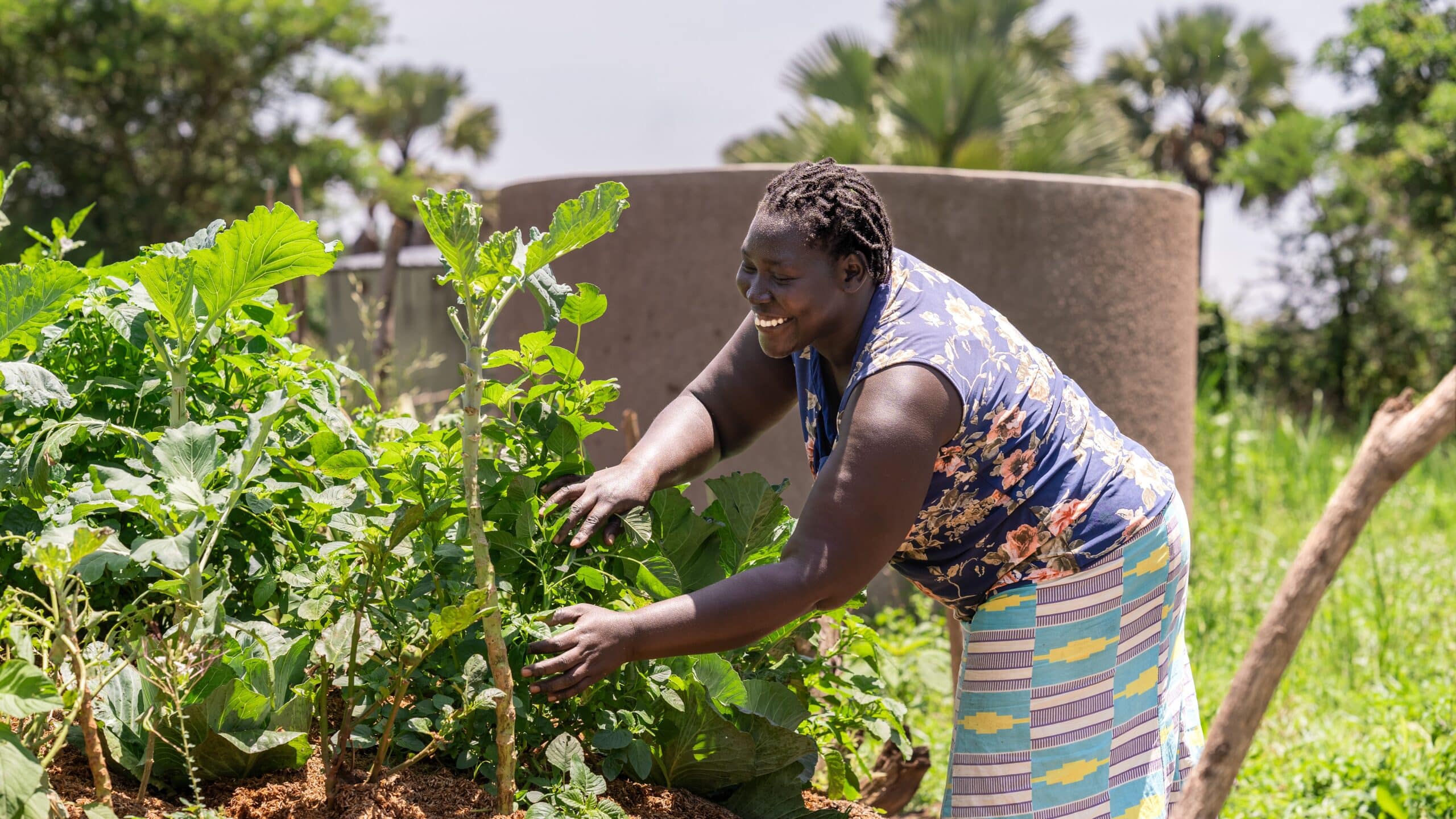
In a remote village in Amuru District, conversations about food have begun to change. Where once many households faced food insecurity, families are now cultivating vegetables in their own backyards. Through agricultural training sessions conducted with the support of local government officers and good-quality inputs, Raising The Village introduced practices such as nursery bed preparation, keyhole gardens, composting, and mulching. These practices are not only improving harvests but also transforming diets, health, and incomes.
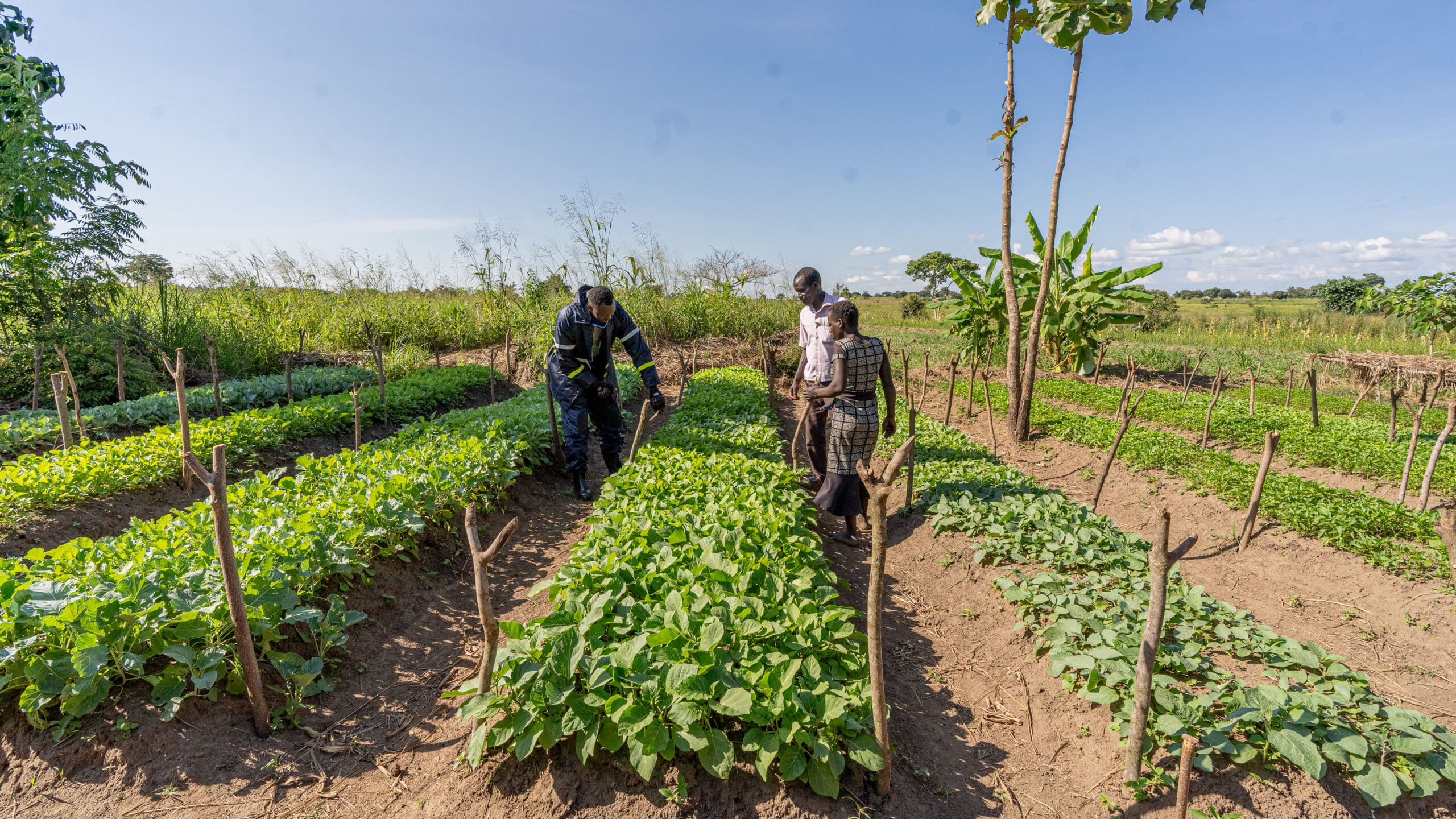
At the community level, nursery beds were established so that every household could transplant seedlings to their home gardens. The goal was simple: to ensure that vegetables are always within reach, improving nutrition and reducing food insecurity. Sharon, a 32-year-old mother of four, says the program has transformed her family’s diet. “We received very many varieties of vegetables that we didn’t even know of. This has helped me have a balanced diet for myself and the children,” she explains. Her daughter, Sarah, is particularly fond of sukuma wiki. “My favourite vegetable is sukuma wiki, I love to prepare it because it’s easy and even delicious,” Sarah says with a smile. Sharon further shares how the changes have been multi-dimensional. “My children look healthier, and they love the vegetables. They even take care of them, and that is why our keyhole garden always looks good. I no longer spend money on medical bills like I used to before,” she adds.
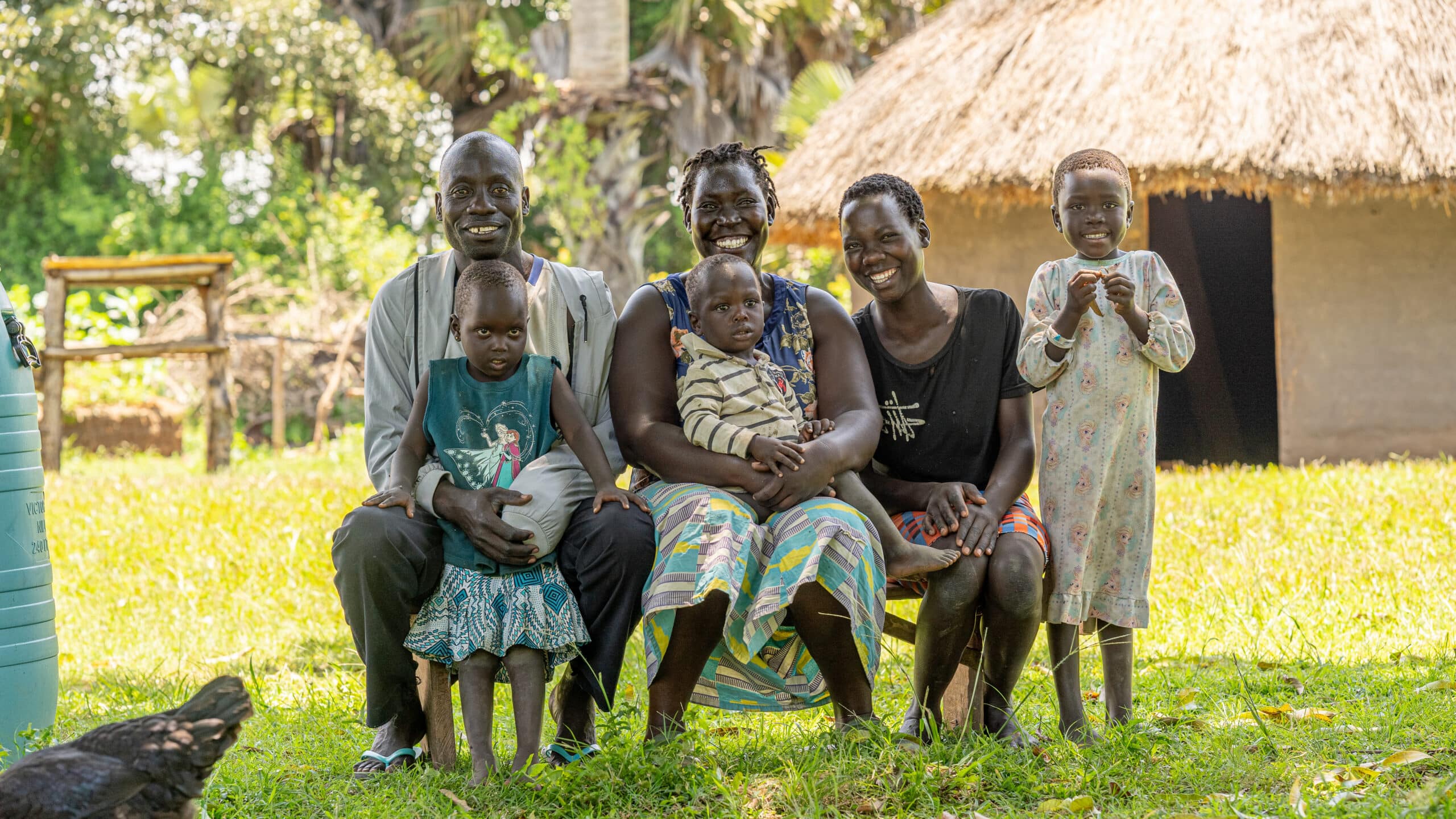
In the same community, Betty and her husband John, a retired teacher, have also embraced the practice. From the nursery bed, Betty established two keyhole gardens and a backyard garden to sustain their household of ten, which includes six children and grandchildren. “When we established the gardens in our compound, the soil was very hard, and we thought it would not be possible. But with the help of RTV, we managed to establish them, and they really do well,” Betty says. Today, she picks vegetables both for her family’s meals and for sale at the nearby market.
For 76-year-old Pilimena Obwollo, the most significant change has been convenience. “The availability of the keyhole and backyard gardens has reduced the distance from my home to the market. I would walk two kilometers to buy vegetables in the past. I can now just walk into my garden and get all the vegetables I need in minutes,” she says. Pilimena grows spinach, onions, cabbage, sukuma wiki, okra, nakati, tomatoes, and African spider plant, varieties that bring both diversity and nutrition to her diet.
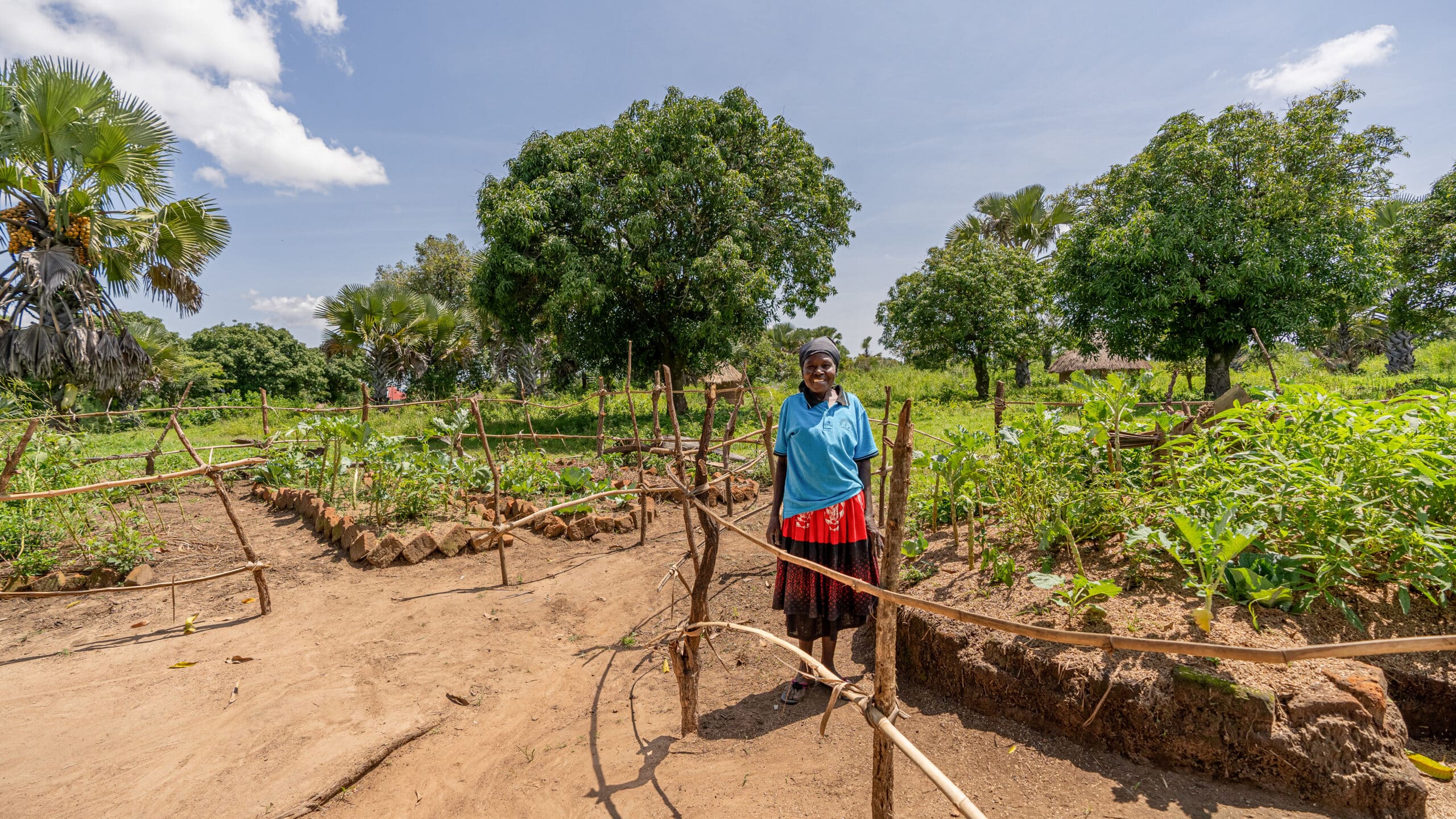
68-year-old Oryema has turned her keyhole garden into both a source of food and a small business. Alongside her vegetables, she now sells maize flour and household items from a stall at her home. “I am getting old and from the vegetables, I will be able to get what to eat and sell at the same time in the comfort of my home. The gardens are easy to maintain. Unlike walking long distances to the gardens before, I can easily attend to my gardens here as I make sales,” she explains.
For Oryema, the benefits are also personal. “The high consumption of vegetables has helped me reduce the high blood pressure after being advised by the doctors to consume more vegetables. This keyhole garden training came so timely and has restored my hope that I can live longer again,” she says. Her favorites, sukuma wiki and nakati, continue to sprout back each time she harvests, ensuring a steady supply.
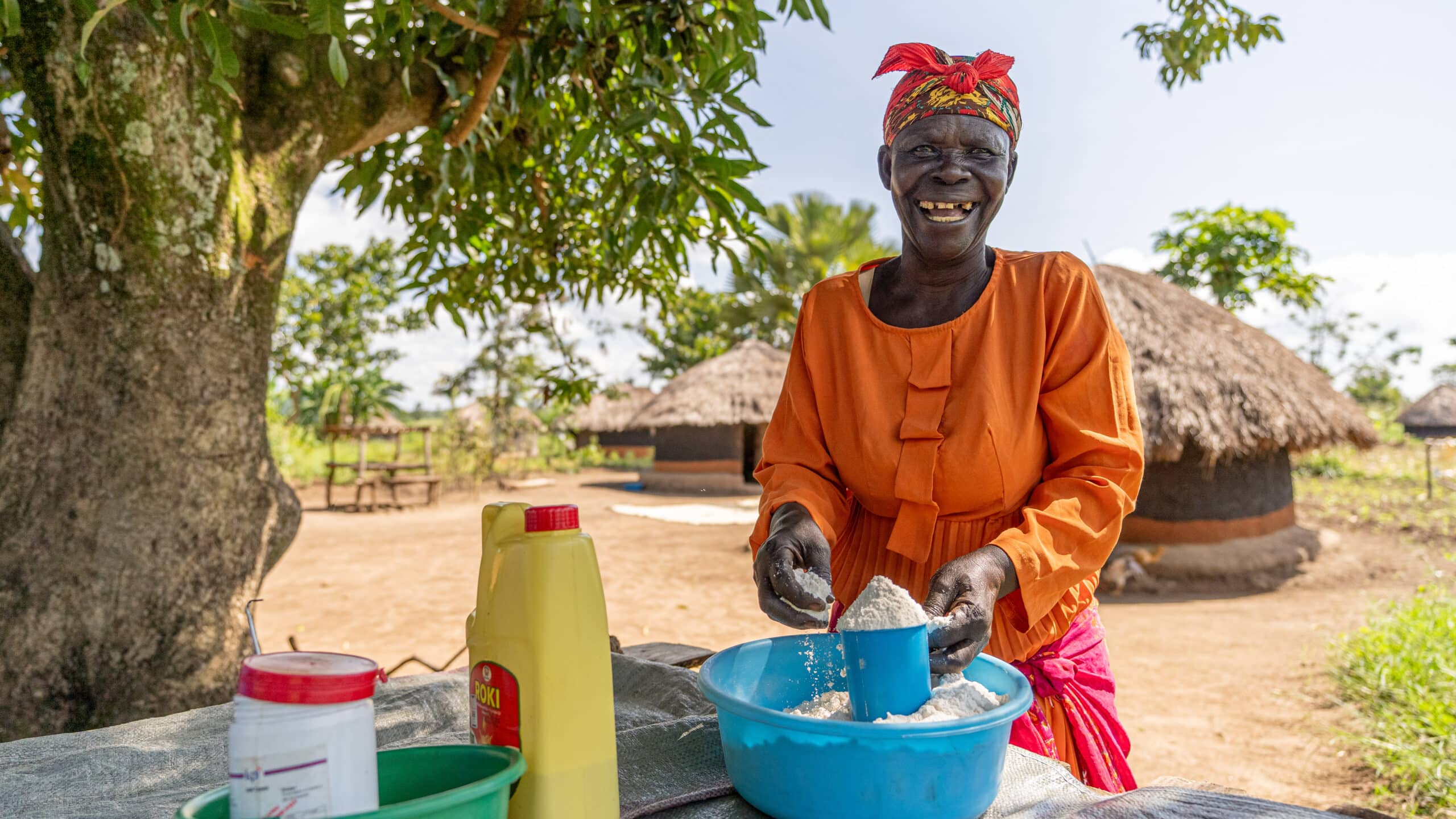
From Sharon’s family discovering new varieties, to Betty’s household sustaining ten people, to Pilimena’s newfound convenience and Oryema’s home-based enterprise, kehole and compound gardens close to home are reshaping daily life.
Be part of our journey. Support last-mile communities by supporting Raising The Village.
Let’s Stay Connected

